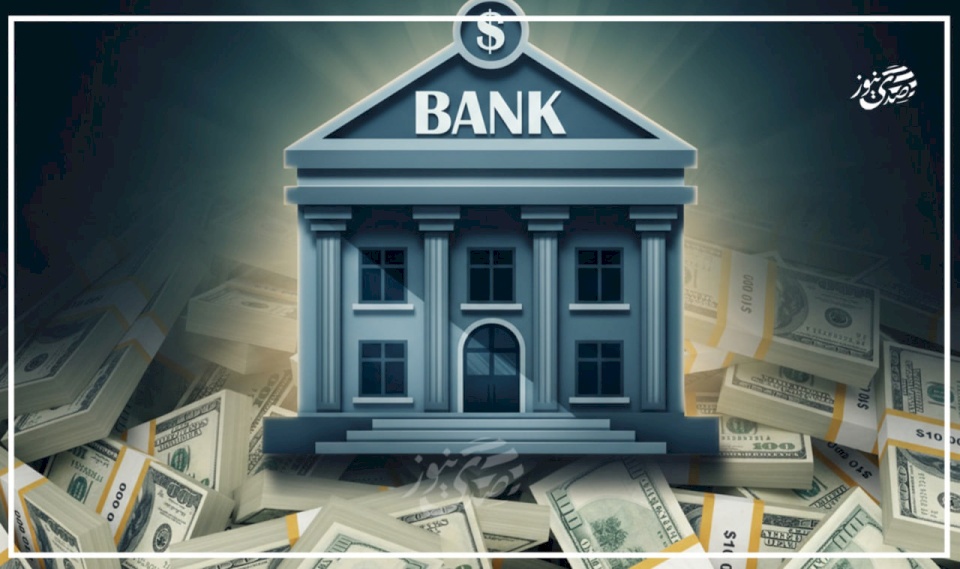
Will a New Bank Open in Palestine Soon?
Exclusive SadaNews: Recently, rumors have circulated on social media platforms indicating that a new bank will be opened in Palestine dedicated to the reconstruction of the Gaza Strip. What is the truth behind this?
The Governor of the Palestinian Monetary Authority, Yahya Shanar, recently denied during a meeting with journalists that the Monetary Authority received any proposal to establish a bank aimed at contributing to the reconstruction process of the Gaza Strip.
Shanar stated that some Arab countries have made significant progress in the field of Islamic banking, and there is no objection from the Palestinian side to benefit from this particular field by receiving Arab investments. However, he emphasized that the Palestinian market is practically small, currently hosting 13 local and foreign banks, and does not initially need new banks unless they will truly add qualitative value to the Palestinian banking sector, specifically in the field of Islamic banking.
He added: "The Monetary Authority's policy generally encourages mergers between banks or large banks acquiring smaller banks to strengthen their capital. Therefore, we advocate this policy instead of granting licenses to new banks."
SadaNews learned from an informed source that the Governor of the Monetary Authority recently met during a foreign visit with some Gulf investors who formally submitted a request to the Monetary Authority to establish a bank in Palestine operating under Islamic banking with a capital of 100 million dollars. This request will be studied and a response will be provided.
Currently, there are 13 banks operating in the Palestinian market, including 7 local banks (three of which operate according to Sharia law) and 6 foreign banks (5 Jordanian and 1 Egyptian).
As of the end of September, the paid-up capital of banks operating in Palestine was approximately 1.34 billion dollars, while total customer deposits reached about 21.2 billion dollars, and the facilities granted were around 12.8 billion dollars.
According to the Monetary Authority, the operating banks in Palestine enjoy high financial robustness, with a capital adequacy ratio of 17.1%. The value of assets reached approximately 27.6 billion dollars, while non-performing loans did not exceed 5.4% (about 681 million), despite difficult economic and political circumstances. The coverage ratio for non-performing loans is about 62%.
The Monetary Authority has followed a policy over the years to raise the bank’s capital to reach recently 100 million dollars, with the aim of encouraging mergers and acquisitions and building financially strong banking institutions.
For his part, banking expert and financial advisor Muhammad Salama, in a conversation with SadaNews, believes that the banking sector needs a strong bank to compete and develop services.
He adds: "Banking services are thriving, and the ability of banks to achieve profits is very easy," noting that there are indicators and evidence supporting the hypothesis of the need for competition since the cost rate of sources of funds or customer deposits is very low, less than 1.25%, while the interest rate on loans is high and exceeds 7%. This creates a wide margin.
He noted that banks charge fees for their services, such as account management fees or cash withdrawals, as well as the foreign currency pricing margins, which are significantly high and sometimes unjustified.
He pointed out that an "Islamic" bank or a Gulf-backed bank is an old and new idea, but this time it has been presented in a more feasible manner.
He indicated that the current proposal is to establish an Islamic banking entity with a capital of 100 million dollars. It is noted that the banks operating under Sharia in Palestine are merely arms of commercial banks or at least hold shares in them and membership in their boards of directors.
He highlighted that the proposal for an Islamic bank will inject investment into the local economy and support the development process and create direct job opportunities, confirming that establishing a bank with these specifications will support the trend towards financial inclusion and develop the financial technology environment, attracting new customer segments to banks, and supporting competition and the development of Islamic banking services that grow at rates higher than those of commercial banks in the region.
He states: "The financial indicators for banks are strong and confirm our need for strong banks capable of competing to develop services, reduce costs, and improve the level of services provided to citizens."

The Problem of Shekel Overcrowding Worsens.. Fuel Station Owners Threatened with Closure o...

The Palestinian Economy at a Crossroads: 4 Files Awaiting Resolution

Mas Institute Publishes New Study on "Political Economy and Challenges of Palestinian Deve...

A Strong Blow to Smotrich: The Knesset Abolished Doubling the VAT Exemption for Online Pur...

Exchange Rates of Currencies Against the Shekel on Tuesday (February 24)

Oman: Ministerial Decision to Establish the "Palestinian Endowment Foundation" with a Capi...

Newspaper: 'Peace Council' Prepares Plan to Launch 'Digital Currency' for Gaza Aimed at Dr...
